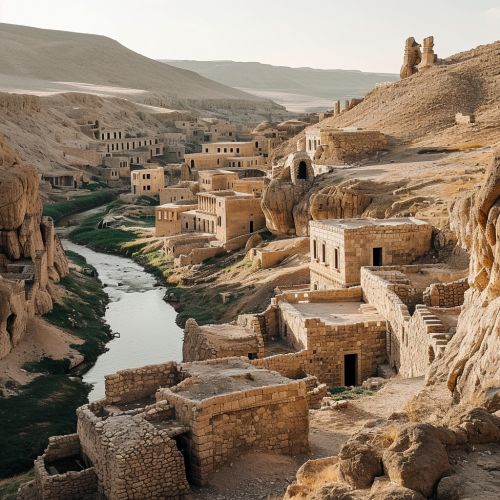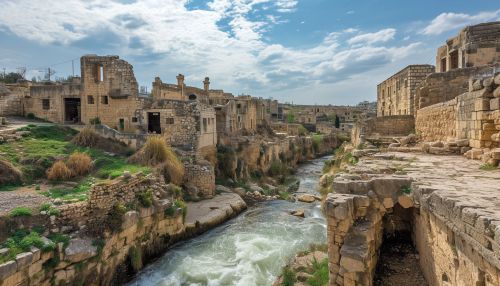Ancient History
Origins of Civilization
The study of ancient history begins with the invention of writing systems, around 3200 BC in the Near East. Prior to this, the period known as prehistory was characterized by the use of primitive technology and simple tools, often made from stone. The invention of writing marked the transition from prehistory to history, and allowed for the recording of events, laws, and administrative processes.


Ancient Near East
The ancient Near East was home to some of the earliest civilizations in history. These included the Sumerians, Akkadians, Babylonians, Assyrians, and Persians. These civilizations developed complex societies, with social hierarchies, organized religion, and advanced technology. They also made significant contributions to art, literature, and science.
Ancient Egypt
Ancient Egypt was one of the world's first great civilizations. It was known for its monumental architecture, including the pyramids and the Sphinx, as well as its hieroglyphic writing system. The civilization was also notable for its complex religious beliefs, which included a pantheon of gods and goddesses, and the belief in an afterlife.
Ancient India
The Indus Valley Civilization, one of the world's oldest urban civilizations, emerged in the third millennium BC. It was followed by the Vedic period, which laid the foundations for Hinduism. The Maurya and Gupta empires, which followed, were periods of great cultural and scientific advancement in ancient India.
Ancient China
Ancient China was characterized by dynastic rule, beginning with the Xia dynasty around 2070 BC. The Shang and Zhou dynasties followed, with the latter marking the beginning of China's philosophical age. The Qin dynasty, which followed, saw the unification of China under a single emperor for the first time.
Ancient Greece
Ancient Greece is often considered the birthplace of Western civilization. It was known for its city-states, such as Athens and Sparta, its philosophy, drama, and contributions to science and mathematics. The period of Greek history known as the Classical period saw the rise of democracy in Athens, the Persian Wars, and the age of Alexander the Great.
Ancient Rome
Ancient Rome was a republic before becoming an empire. It was known for its legal system, engineering feats, and contributions to art and literature. The Roman Empire, at its height, controlled vast territories across Europe, North Africa, and the Middle East.
Conclusion
The study of ancient history provides valuable insights into the development of human civilization. From the invention of writing to the rise and fall of empires, ancient history tells the story of humanity's progress and setbacks, and the cultural, technological, and societal advancements that have shaped the world we live in today.
